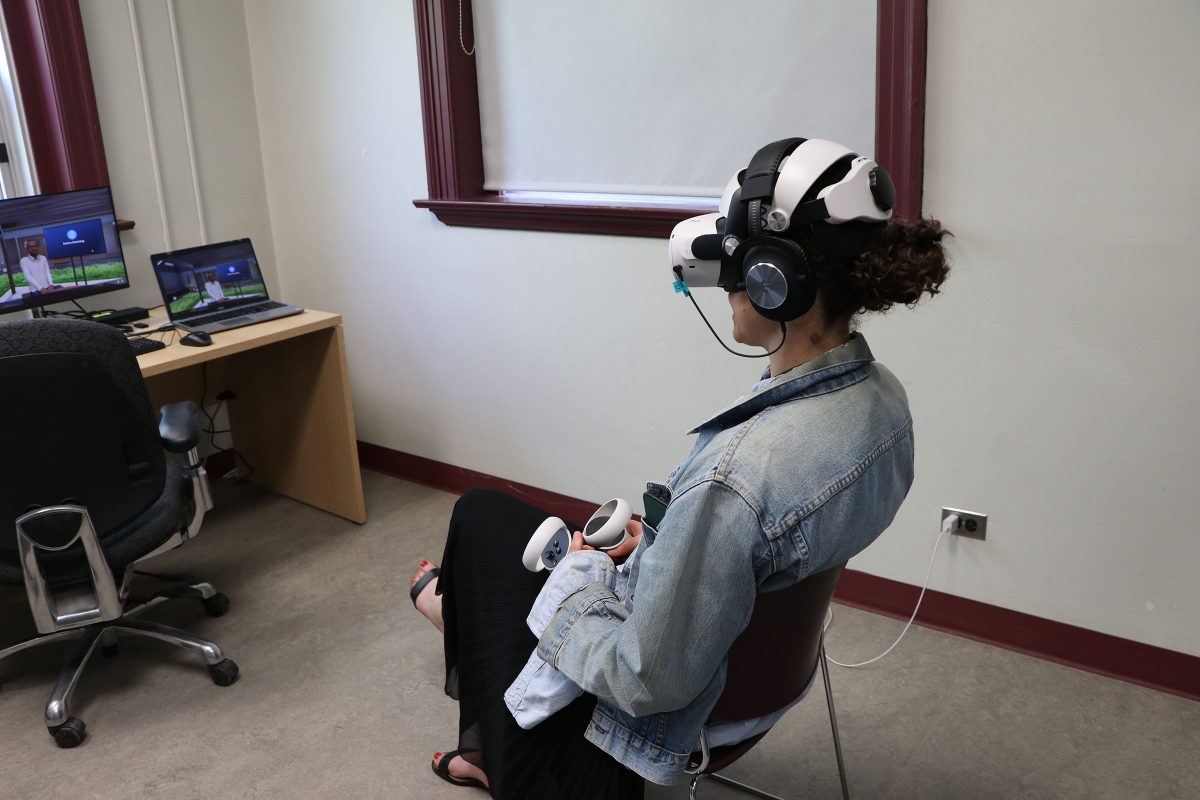
Improve your student conversations skills using virtual reality
New immersive learning experience uses virtual reality to improve one-on-one communications with students
A new training series is combining new technology with verbal communication training to help faculty members and sessional instructors have better conversations with students.
The series, designed by Dr. Brenda M. Stoesz, Research Lead – Science of Teaching and Learning, at The Centre for the Advancement of Teaching and Learning, begins Tuesday, October 29, 2024, with the Effective communication: How to have better conversations with your students workshop.
The Centre’s Evaluation Developer, James Plohman, led the development of the first installment in the program and will be co-facilitating the workshop session component with Evaluation Developer Dr. Ibiyemi Arowolo. Following the workshop, participants of the program will take part in in three immersive VR sessions in private sessions facilitated by undergraduate student research assistants.
The program was developed to support faculty members and sessional instructors looking to improve their communication skills in a variety of situations that may be difficult or high stakes.
“We’ve heard from faculty that they were looking for more information on how to improve their skills to better communicate with students—especially in situations that may be more challenging—and create better outcomes,” says Plohman.
Through a workshop and immersive VR sessions, participants will explore effective communication techniques relevant to various educational contexts and will be able to practice their skills in a judgement-free environment that incorporates role play within virtual reality simulations.
“The use of virtual reality as part of the training provides an environment that allows participants to practice in a semi-realistic way,” says Plohman. “They can do the modules multiple times, trying different approaches to see how it changes the interaction. The overall goal is to help people become more comfortable, confident and effective verbal communicators.”
Anika Budhiraja is a research assistant at The Centre and was involved in the pilot project as a student. She will also be facilitating some of the VR sessions. She says the focus on active listening and clear verbal communication, combined with being able to practice in virtual reality, made it a valuable and engaging experience.
“Going through it myself as a participant, I remember thinking that these are the things you may not think about explicitly—things that you sort of forget,” she says. “The VR practice gives you a safe space to check what you’re doing and practice and get better. It can be hard to pinpoint what might be going wrong. With VR you get that immersive feeling that you’re in that space, you’re communicating, but you’re not being judged.”
Following the training, a reflection workshop will enable participant to share their experiences with others in the program and discuss ways that they will transfer their training to their classroom and meetings with their students.
“We’re very excited to roll this out and hear back from faculty and use that feedback to develop further modules in the future,” says Plohman. Feedback will be used to improve this series and other teaching skills programs from The Centre.
Along with supporting instructors in improving their skills, the program also gives educational and research opportunities to three UM undergraduate students.
The program runs October 29 to December 10, 2024, with an approximate eight-hour time commitment from participants.
Register for the Teaching Skills Program: ‘Effective Communication: How to Have Better Conversations with Your Students’






